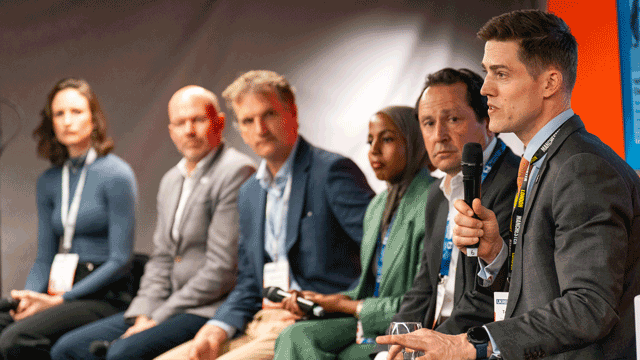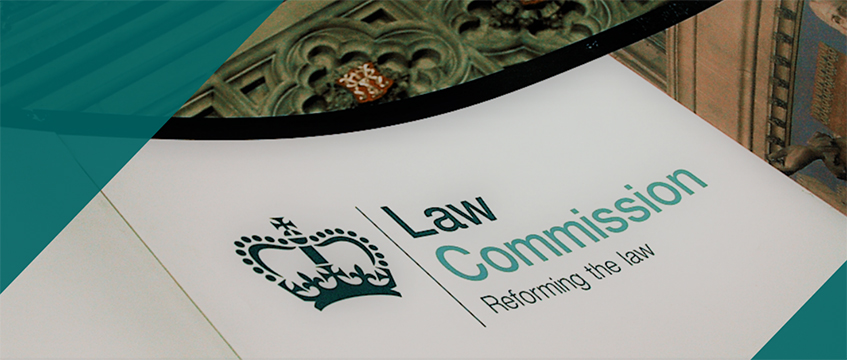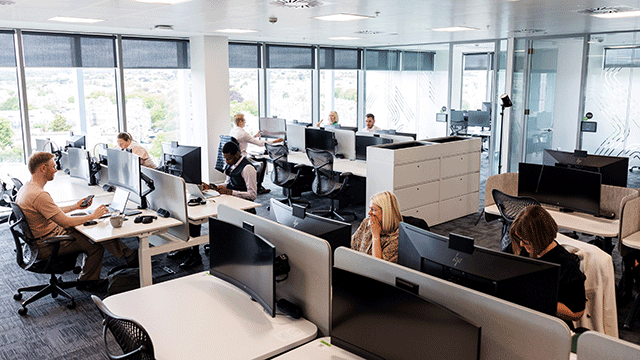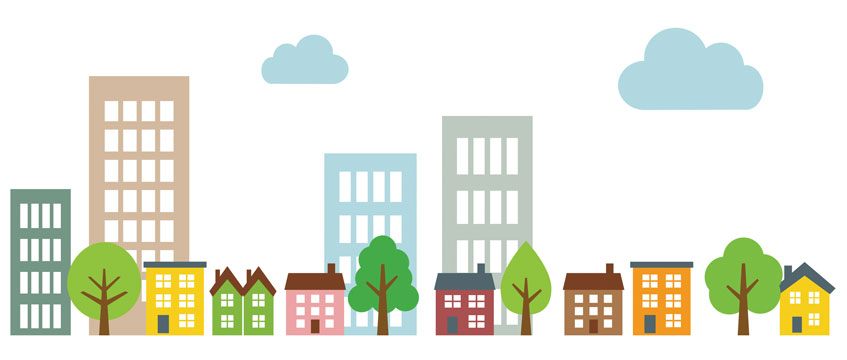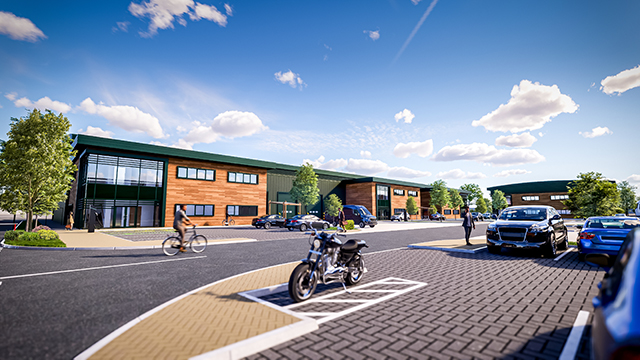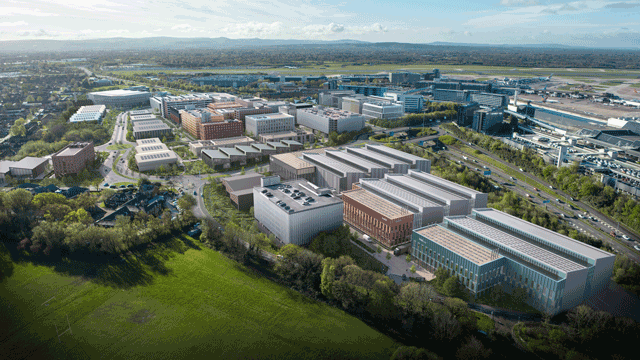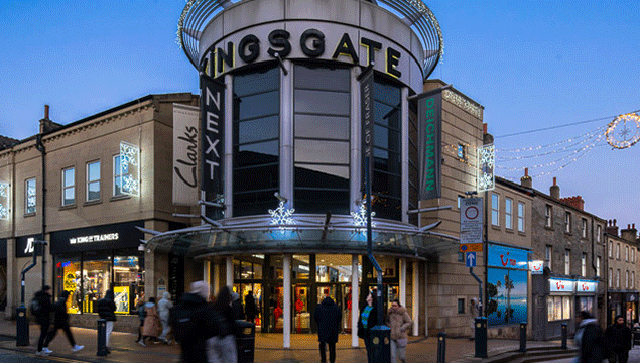‘All changed, changed utterly: a terrible beauty is born.’
WB Yeats was writing about the violent birth of the Irish Republic, but his haunting phrase could easily describe what is happening in the centre of London. The pandemic – which has racked up over a million deaths globally and 45,000 in the UK – is also accelerating the transformation of the city in unpredictable, unexpected and yet seemingly inevitable ways. And that isn’t such a bad thing, says real estate’s resident philosopher, Dror Poleg.
“For London I’m generally optimistic but that doesn’t mean it’s not going to be painful,” he says, speaking as part of EG’s Future of London series.
The city is currently close to empty. Argent Related’s Piers Nickalls estimates that between 10 and 15% of workers have returned to the CBD, which won’t change any time soon.
“Until we get a vaccine I think we won’t really see what the prevailing trends are,” says Nickalls. “We won’t know whether people really do want to commute less, and whether people do want a different type of lifestyle.”
For Poleg, the real question is what will happen after that. “The pandemic has pushed us forward, expedited things,” he says. Home working, the suspension of the daily commute and the adoption and adaptation of technology is transforming our city centres, especially London.
In many senses, says Travtus founder Tripty Arya, “the city no longer is physical”. Its business is in the CBD, but its workers could as easily be in the Mumbles or Mumbai as the Minories.
But what does that mean for the city, and indeed, the City?
Making the City residential
“The change is less about cities good or cities bad, the death of cities or the life of cities, it’s more about how are things going to get reshuffled within cities,” says Poleg.
In short, it’s about the decline of the office.
Such a statement should be accompanied with a loud clap of thunder and some chilling organ music. But Poleg is actually optimistic.
“We will see a deprioritising of office buildings as the kind of focal point of the city,” he says. But that doesn’t mean that people will not need offices, just that the over-emphasis of them will end.
Poleg argues that for the “last 70 years, 100 years” we have given too much of a role to offices in our urban planning. “Offices are at the centre, they dominate the skyline, they define what the city looks like,” he says. That cannot last.
The biggest change resulting from Covid is that people are realising they have a choice.
HB Reavis UK boss Steven Skinner agrees. “The biggest impact is that working styles have become democratised. It’s almost down to the individual person when they want to work, how they want to work and where.”
And the impact of this is only just being felt by the industry. “The fact that the consumer may become your eventual client is something that real estate is still coming to grapple with,” says Arya.
But grasping this is key if the city centre is to survive this change, Poleg says. “It depends on people actually being able to live affordably closer to offices that they can walk to or they can access easily. And being able to access the opportunities and joys that a city offers because otherwise, again, they have a choice. If the trade-offs don’t make sense they can actually go somewhere else.”
In other words, the City must become more residential. “I think that we can move back to prioritising houses. Ultimately the future of office depends on the future of housing.”
The currently office-dominated CBD can, and must, change. The desire, the demand for “factories for white collar workers”, huge shiny monoliths, is less certain than it was a decade ago.
“That’s the bad news,” says Poleg. “The destiny of office real estate is no longer in its own hands.” The ‘I’m alright Jack’ days are over. The better news is that most UK companies are already tackling this, making buildings more sustainable and creating mixed-use projects.
What the industry must do is embrace this change. “In practice, it mostly means doubling-down on things that are in place and already working,” says Poleg.
And it is this that might just fix the UK’s productivity problem. By acknowledging that the previous paradigm was less than perfect, real estate and cities have a chance to change in a way that can be more beneficial.
The need is clear, says Nickalls. Fewer than 10% of young people in the UK feel that they are flourishing. “If you compare that to Denmark, 40% of young people feel they are flourishing.” And their wellbeing is directly linked to their happiness and their productivity.
Unfortunately, “the industry doesn’t define productivity at all,” says Arya.
Or at least “we aren’t very good at judging if the product we create actually supports the productivity in workers,” says Skinner. Data and technologies can help that though.
Then, Nickalls says, we can create more flourishing neighbourhoods “so that people feel happier and are more productive”.
Covid-19’s silver lining
But that means that many former prized assets will have to give way to something new. The ‘good news’ of Covid, Poleg says, is that the values of those assets have now fallen to a point where redevelopment is more appealing. “So suddenly you do have buildings to work with close to people’s homes and you can turn them into something that is a bit more suitable to what they need.”
It is a silver lining around the sizeable thunderhead of falling values and uncertain covenants.
“But this is not a period for us to react to but a period for us to learn from,” says Arya.
Yes we are at a challenging time, agrees Nickalls. “But during challenging times there’s periods of great innovation and there is an opportunity to do things differently. Everything is under review now and that’s a good thing.”
Real estate must become part of a solution which has been made more possible by this seeming catastrophe. “We have to use this opportunity to really listen to the individual, to give people the workspace, whatever that may be – an office, home, somewhere in between – that really supports them and their productivity. For the city, we have to make London as sustainable as possible and also increase the affordability of living and working in the city.”
In other words: “Embrace the risk, don’t try to ignore the risk,” says Poleg. “Don’t try to pretend that whatever you were doing before is still going to work. Push yourself to do things that are bolder. More flexibility, more service, more experiments. Partner yourself with a few different companies to try to see what works and what doesn’t work.”
In this brave new world, born from ruins of the pre-pandemic paradigm, “trying to stay safe is the riskiest strategy of all”.
A terrible beauty is born.

Image © Shutterstock




